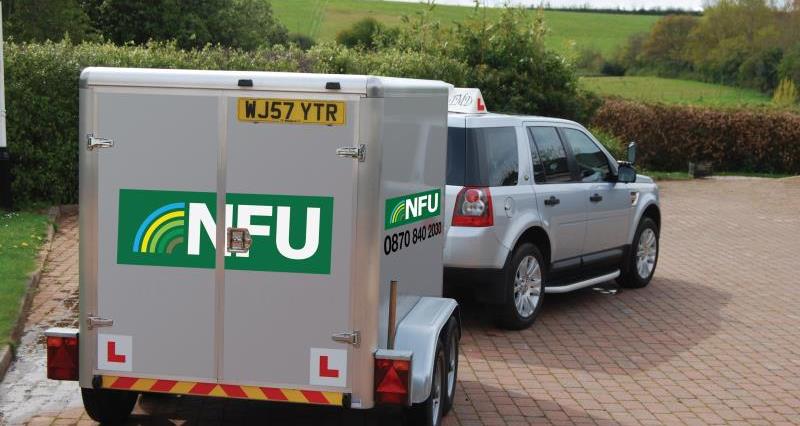It may seem obvious that functioning mirrors and an adequate view around a vehicle are essential for safety and accuracy when driving and especially when manoeuvring.
However, the obligations on drivers of 4x4 and other vehicles when towing a trailer are often not well understood. This is illustrated by a case recently reported to us in Cheshire. In this case, a member towing a livestock trailer with a Land Cruiser was stopped by the police for not having mirror extensions in use.
The law on what is required when towing is complex but can be summarised as:
- Every goods vehicle and dual purpose vehicle (e.g. Land Rover Defender) must have two mirrors. One fitted externally on the offside and one internally. However, if internal visibility is obscured then an external nearside mirror must be fitted. In practical terms this will mean that two external mirrors are required.
- Cars are required to have an internal rear view mirror and external offside and nearside mirrors.
- If you are towing a trailer that is wider than the towing vehicle there will be a need to fit additional mirrors in order to maintain an adequate field of vision both to the side and rear of the vehicle combination. The requirement is to have clear field of vision 4 metres out from the side of the trailer and 20 metres back behind the driver of the combination. If the trailer is wider than the towing vehicle then additional mirrors will be needed to avoid any blind spots caused by the edge of the trailer.
- External mirrors must not extend more than 25cm beyond the width of the trailer. If the towing car was produced before 26 January 2007, mirrors must not extend more than 20cm beyond the edge of the trailer.
Fitting mirrors
Best practice is for the job to be carried out by two people - one person inside the car fitting the mirrors and another person standing 20 metres back to check for blind spots.
Penalties
Failure to fit additional mirrors when pulling a trailer wider than the towing vehicle can result in 3 penalty points on a licence and a fine of up to £1,000 for each offence.
Please note that this is not a definitive statement of the law as the requirements are complex and further advice should be sought from a suitably qualified person.
